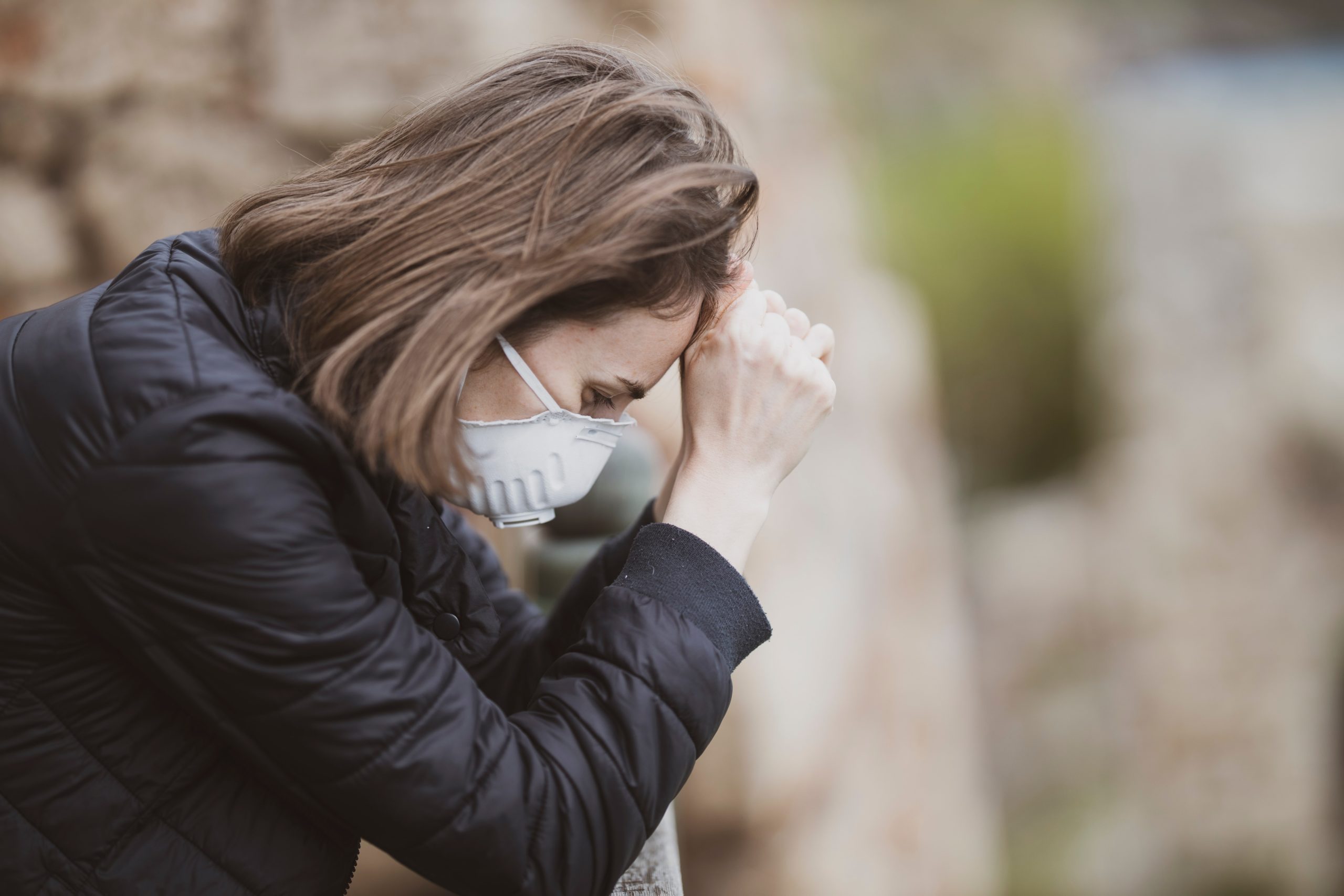Nurse anxiety is not uncommon. It does not matter whether you are new to the profession or a veteran nurse. Anxiety can strike at any time and have a devastating effect on your health and well-being. When left unchecked, anxiety can lead to depression and eventual burnout.
Frontline nurses are more susceptible to anxiety, especially during health crises such as the current COVID-19 pandemic. That does not mean other nurses are immune to the kinds of stressors and worry that can trigger anxiety.
Get job matches in your area + answers to all your nursing career questions

Why are nurses prone to anxiety?
While nursing comes with many rewards, it is not without its stressors. Long working hours and double shifts can lead to mental and physical exhaustion. Odd hours from shift work can interrupt the normal sleep cycle. Understaffing can overburden nurses by increasing their patient workload.
“Currently, the things that cause me the most anxiety as a nurse are lack of proper PPE, the higher acuity of our patients, and not enough staff to care for them,” said Erin Jones, an RN in Alabama. “Lack of staff is a big stressor for us right now, and it keeps getting worse.”
Losing patients is another big stressor for most nurses and a huge source of their anxiety. Jones works with oncology patients, where loss is expected. That does not make it any easier. “I think anxiety is very common to those of us who work in healthcare,” she said. “We are under so much pressure at work to care properly for our patients, and sometimes, no matter what we do, they don’t make it.”
Another factor that can amp up the anxiety levels for nurses is toxic workplace culture. Bullying, workplace incivility, and lateral violence are becoming more prevalent in the nursing profession and can lead to high levels of anxiety.
Tips for dealing with nurse anxiety
Knowing what causes nurse anxiety is the first step toward combatting it. Once nurses have identified their triggers, they can strategize healthy and effective ways to cope.
Recognize when anxiety strikes
There are physical and psychological signs associated with anxiety. Some of the more common physical symptoms include dizziness, palpitations, extreme fatigue, shortness of breath, abdominal pain, headaches, insomnia, and a pins-and-needles feeling. Psychological signs can include restlessness, irritability, difficulty concentrating, and avoidance. Knowing these common signs and symptoms can help nurses identify when they need to seek help.
Seek help for anxiety
Once nurses recognize they are dealing with anxiety, they need to seek help from the right place. Maybe this includes talking with a mentor who can guide you in the right direction. It may include visiting your healthcare provider to discuss anxiety management and medications that can help ease some of the symptoms.
Look into therapy. Some hospitals offer free sessions to their medical staff. The worst thing a nurse can do is to ignore the anxiety and hope it will go away on its own. This is rarely the case.
Work with a mentor
Veteran nurses have dealt with just about every situation that can cause a nurse anxiety. They can be a great resource for new nurses who are struggling to calm their anxiety.
“I tell new nurses that one thing we all need to remember is that we can only do so much,” said Jones. “Don’t skip lunch breaks, hydrate, and go to the bathroom. In a hospital setting, I remind them that we are a 24-hour care facility and what doesn’t get done on one shift, the next shift picks up.”
Jones said she also reminds nurses to prioritize their skills and to avoid taking things personally while on the job.
Enforce a work-life balance
Burnout can happen with many high-stress jobs. Nursing is no exception. Failing to enforce a work-life balance is one of the quickest ways to reach maximum overdrive for stress and anxiety.
Sometimes this can mean setting boundaries in work environments where management may not be respecting the need for downtime. “I stress to nurses that they are allowed to say no to working extra hours,” said Jones. “It’s OK to have a life outside of work.”
And if that doesn’t work in your job or unit, another option is to make a change. Find a different unit to location to work at if necessary.
Eat, sleep, and relax
Nurses and other healthcare professionals know the importance of getting enough rest and eating a nutritious diet. Nurses, especially, focus on these aspects of health every time they earn CEUs to maintain their nursing credentials.
Yet, they often forgo all these things while rushing around to treat patients in their care. Finding a hobby and engaging in regular exercise is imperative to maintaining good health. Jones said her go-to relaxation methods are reading and practicing yoga or meditation.
A final word on nurse anxiety
Even the most resilient of nurses can suffer from anxiety and depression. They must know how to recognize the signs and seek help when they are unable to cope on their own. Most of all, Jones said it is important for nurses to give themselves grace under pressure.
“We all have days where we go home wondering if we are in the right field and if we really know what we are doing,” she said. “That’s something that I don’t think will ever go away when you’re a nurse.”
Get job matches in your area + answers to all your nursing career questions

